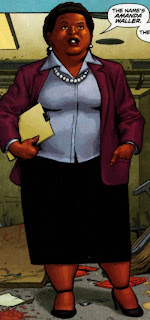Some folks who worked as unpaid interns during the making of the movie Black Swan are now suing the makers of Black Swan demanding that they be paid because they were exploited by their employers, especially after the film made $300+ million worldwide. They're also fishing for class action status so they can include other past interns.
That's the bad news.
The good news for these interns is that they'll never have to worry about being exploited by a Hollywood employer ever again.
Now they're saying that Fox Searchlight violated Federal labor laws that regulate unpaid internships, saying that fetching coffee, cleaning up, and other menial tasks were not educational enough to be worth their time.
I think that it's not a failure on the part of Fox Searchlight to teach, but a failure on the part of the interns to learn.
You see classroom education can only go so far when it comes to movie making. A certain amount of hands-on experience is needed, and being an intern is a good way to learn the industry.
Here are some lessons these interns should have learned from their experience:
1. Small films are big work: When you're making a low budget film like Black Swan it's an "all hands on deck" situation. Big films have big money, that means the work is divided among very large crews over a much longer period of time.
A small film, like the $13 million Black Swan, doesn't have the luxury of a big crew or a long schedule. Fewer people have to do more, with less material and money, and have to do it faster as well. That means working your ass off at whatever needs doing. If they didn't learn that, then the onus of the program's failure is on them.
2. Scut work is more about character than work: When you're doing what I call "scut work" or scuttling around fetching coffee, picking up dry cleaning, and even sweeping floors it's not really about the work being done, but the person who is doing the work. Hollywood has a hell of a lot of assholes running around, and when you get to people in authority the percentage increases exponentially. People in film are constantly looking for non-assholes to leaven the mix, because non-assholes are good to work with.
 Scut work at the bottom of the movie-making
Scut work at the bottom of the movie-making
3. You can't manage until after you've been managed: You can't be taught how to manage people in a classroom. To learn to be a good manager you must first be managed. That means getting assigned low level jobs, doing those jobs, and while you're at it, observing your bosses and studying their techniques and methods of getting people, including you, to do their jobs.
If you're too busy grousing about fetching coffee and picking up laundry to pay attention to how your bosses work, then the failure of the program is square on your pointy little head.
I'm a huge advocate for starting at the bottom rung of the ladder and working your way up. Hollywood worked this way during its "Golden Age." At first the major studios were run by the men who literally built them from scratch. When their time ended the leadership of the studios passed onto men who worked their way to the top, men like...
 |
| LEW WASSERMAN |
Lew Wasserman is considered by many to be the last studio mogul of the classical Golden Age mold. His show business career began in high school where he made contact with the then mega-agency MCA to negotiate bands to play at his school dances.
The then head of MCA liked the kid's hustle and hired him to work in the mail-room. This was the lowest job in the agency, with the worst pay, and involved way more scutwork than just sorting the mail, but it gave the young lad two things, his foot in the door, and a chance to make himself noticed by his bosses, and not for filing a lawsuit because he had to work too hard.
Wasserman made a point to memorize every contract he packaged and shipped. He then made himself available to quote chapter and verse when needed and saving his employers the hassle of digging up the contract. This hustle impressed his bosses, and soon he was an agent, then in short order he was running the company. When MCA bought the then struggling Universal Pictures, he took that over, saving the studio and making it a powerhouse in television. Later on he made the company a home for new young filmmakers like Stephen Spielberg and John Landis, and helped usher in the "Blockbuster Era."
Today's system of finding and hiring executives is based not on work ethic, grit, or hustle, but on coming from the right Ivy League schools and having friends and relatives in the right social circles. Wasserman had none of that, he was a kid from the old neighborhood with no preexisting connections and no Ivy League pedigree who showed guts and nuts to the right people.
His reign at Universal wasn't perfect, but it did show more vision and adaptability than most of the disposable pseudo moguls that run Hollywood today. Plus, since his career was built around Universal, he had more of an emotional investment in the company and his/its legacy beyond his next quarterly bonus. So there is something to be said for starting at the bottom.
He certainly wasn't dumb enough to file a lawsuit that would make him permanently unemployable in the movie business.






























